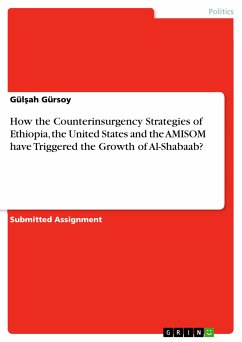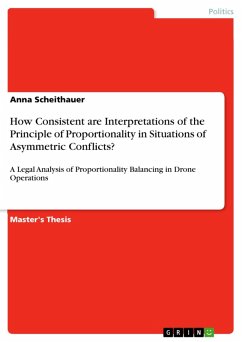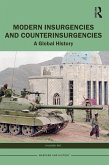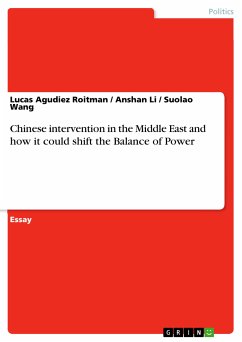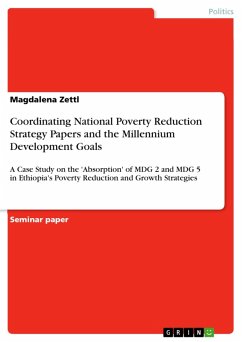Submitted Assignment from the year 2019 in the subject Politics - International Politics - Topic: Peace and Conflict Studies, Security, grade: 70, University of Marburg (Center for Conflict Studies), course: Counter-Insurgency - Aufstandsbekämpfung - Schmutzige Kriege, language: English, abstract: In this essay; the background of the insurgencies in Somali, counterinsurgency (COIN) responses from Ethiopia and the United States, and the reaction of insurgents will be summarized. Somali/Somalia is considered as a "failed state" by the international community, for it does not have functioning state institutions since the fall of Siad Barre regime in 1991. The constant political and humanitarian crises in Somalia have deeper roots in history. The territories where Somali people lived were colonized by French (north, today's Djibouti), British (today's Somaliland) and Italian (southern parts of today's Somali) states. While the imperial powers shared lands in Africa in 18th and 19th centuries, none of them considered exactly what is happening on the soil and which ethnic groups were living where. The borders that were drawn on maps have created enormous problems in the future that no one would ever imagined before. The different agendas and interests of imperial states have initiated conflicts among tribes (or clans), such as British was involved in extracting resources, while Italians were improving cultivation in southern parts. These different kinds of exploitation by imperial powers caused disputes about land and water resources among Somali clans.
Dieser Download kann aus rechtlichen Gründen nur mit Rechnungsadresse in A, B, BG, CY, CZ, D, DK, EW, E, FIN, F, GR, HR, H, IRL, I, LT, L, LR, M, NL, PL, P, R, S, SLO, SK ausgeliefert werden.

